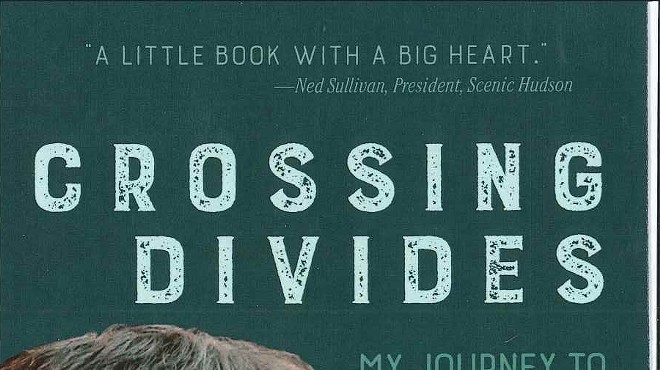John Perkins has led a schizophrenic life. For years he served as an officer in the global corporatocracy, peddling economic strategies to developing nations that widened the gap between the rich and poor. Then his conscience got the better of him. He switched teams and has been a tireless advocate for a just and sustainable world ever since.
Perkins’ 2004 exposé, Confessions of an Economic Hit Man, spent nearly a year and a half on the New York Times bestseller list and made Perkins a star in the sustainability world. His most recent book, Hoodwinked: An Economic Hit Man Reveals Why the World Financial Markets IMPLODED—and What We Need to Do to Remake Them (Broadway Business, 2009), works the same formula that made Confessions such a huge success, combining political and economic analysis with juicy tales about Perkins’s travels and adventures.
At the end of the day, though, it’s not Perkins who’s schizophrenic: It’s our politico-economic system. The global corporatocracy presents two faces to the world. One face—the one that comes to us all gussied up by its promoters—is virtuous and benign, while the other is more menacing. It’s this latter reality, this shadow reality, that Perkins experienced and is intent on sharing with the world.
Although Perkins is delivering a very contemporary and progressive message, in conversation he comes across as a guy with bedrock, old-time values. He wants us to become a true democracy again—a democracy, in others words, in which an engaged and knowledgeable public acts wisely. Perkins sees personal empowerment—claiming and acting on our passion—as the way to make this happen. Wake up! Don’t be hoodwinked or downhearted! Together we can make America great again! This is his message.
I caught up with Perkins recently for a conversation about his views, his life, and our prospects for the future.
John Perkins will be speaking on April 22 (Earth Day) at 7pm at SUNY New Paltz, Lecture Center 100. www.johnperkins.org.
John, you’ve had some dramatic personal transformations in your life, most notably, the one that shifted you from Economic Hit Man to sustainability activist. Was there a particular epiphany that sparked this change?
I joined the Peace Corps as a young man and lived with the Shuar Indians of Ecuador, so from early on I was drawn to spiritual and shamanic paths. When I was working as an Economic Hit Man, my conscience bothered me more and more. At first, I could justify it because I believed in the macroeconomic models we were putting out. Over time, though, I could see that we were selling a bill of goods.
One day, I was sailing in the Virgin Islands. I docked at St. John and walked up to an old sugar cane plantation. I was sitting there admiring the extraordinary scenery when it dawned on me that this plantation had been built on the bones of thousands of slaves. And then I realized: I was a modern-day slaver. I resolved to never do it again.
That’s really a comment about transparency, which is one of the critical issues of our time. You pierced the curtain of time and space.
Every day, we make choices. Which company do we buy our gas from? Our sneakers? Our blue jeans? Are we going to support companies that are in service to people and the planet, or companies that aren’t? Collectively, the choices we make in this area have huge consequences. The world is run by big corporations, but at the end of the day, the marketplace is democratic. We have a powerful vote in the marketplace if we use our power wisely.
To do that, though, we have to know about a product’s life cycle. The information has to be transparent, and it’s not because the big corporations don’t want it to be.
The global “corporatocracy” controls the mainstream media, and so it’s easy to feel we’re stuck with this, but we’re not. We can overcome this situation. We’ve already seen huge changes come about through popular action in the marketplace. We got rid of apartheid by opposing the corporations that supported it. We’ve gotten rid of the type of aerosol cans that destroyed the ozone layer. We got trans fats out of foods and antibiotics out of chickens.
What do you hope to accomplish with Hoodwinked?
I was asked by my publisher to write about the deep causes underlying the current economic crisis. The problem isn’t capitalism, it’s predatory capitalism, a form of capitalism that’s been with us for less than a half century and has created a failed economic system. I wanted to reveal this form of capitalism for what it is, and I also wanted to offer ways to move beyond it. I wanted to help us move toward a world that my two-and-a-half-year-old grandson would be happy to live in.
















